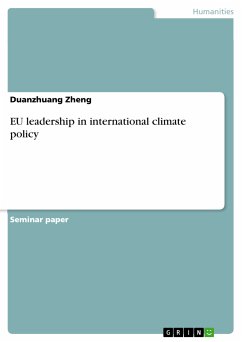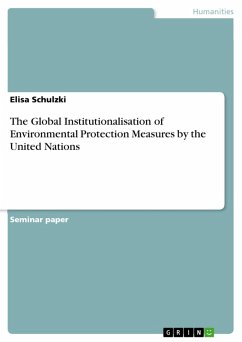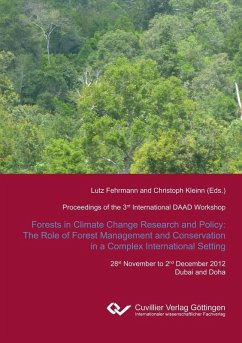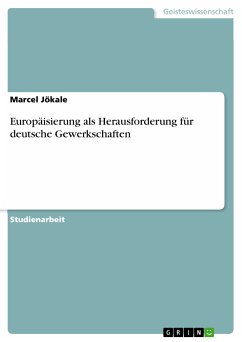
EU leadership in international climate policy (eBook, PDF)
Sofort per Download lieferbar
Statt: 15,95 €**
13,99 €
inkl. MwSt. und vom Verlag festgesetzt.
**Preis der gedruckten Ausgabe (Broschiertes Buch)
Alle Infos zum eBook verschenkenWeitere Ausgaben:

PAYBACK Punkte
0 °P sammeln!
Seminar paper from the year 2012 in the subject Social Studies (General), grade: 1,0, Ruhr-University of Bochum, language: English, abstract: Responding to a central question: To what extent did the EU lead the international climate policy? This paper focuses on the EU performance in global climate negotiations, the type/ quality of the EU leader role, and internal problems/external challenges facing the EU. At the beginning, this paper briefly reviews the climate change in recent 160 years and the global climate negotiations from performances of individual leaders and international institutio...
Seminar paper from the year 2012 in the subject Social Studies (General), grade: 1,0, Ruhr-University of Bochum, language: English, abstract: Responding to a central question: To what extent did the EU lead the international climate policy? This paper focuses on the EU performance in global climate negotiations, the type/ quality of the EU leader role, and internal problems/external challenges facing the EU. At the beginning, this paper briefly reviews the climate change in recent 160 years and the global climate negotiations from performances of individual leaders and international institutions last century to interventions and interactions of state actors this century. Next, the EU climate actions are reviewed and its latest important initiatives are updated. This paper then compares two representative periods: the Kyoto Conference, which signaled the success and achievements of the EU leadership and the Copenhagen Conference, which illustrated the failure and challenges of the EU leadership. Most importantly, this paper applies the neorealism and its varieties to discuss why and how the EU strived for a leadership in international climate policy, and the liberal intergovernmentalism to explore the EU internal problematic leading partially to the failure of the EU at the Copenhagen Summit. In the concluding section, the key points of this paper are emphasized. In addition, the future of the EU leadership and its way forward are discussed.
Dieser Download kann aus rechtlichen Gründen nur mit Rechnungsadresse in A, B, BG, CY, CZ, D, DK, EW, E, FIN, F, GR, HR, H, IRL, I, LT, L, LR, M, NL, PL, P, R, S, SLO, SK ausgeliefert werden.













